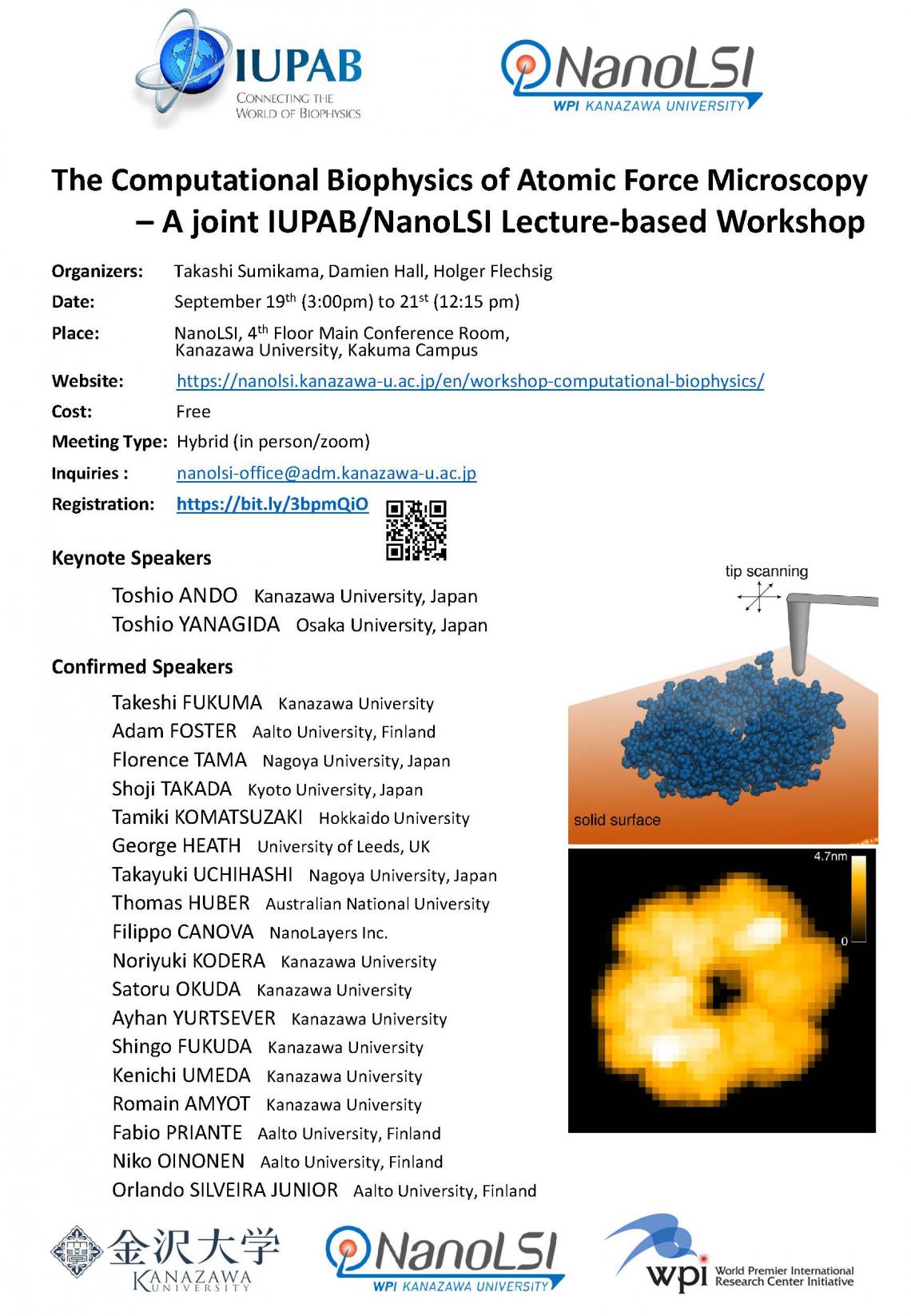The Workshop on Computational Biophysics of Atomic Force Microscopy – A Lecture Course Approach is being organized by Assistant Professor Damien Hall, Assistant Professor Takashi Sumikama, and Assistant Professor Holger Flechsig from the Division of Computational Science at the NanoLSI.
The aim of the workshop is to introduce a wide range of computational and theoretical methods applicable to both simulating and analyzing Atomic Force Microscopy (AFM) experiments. The described simulation approaches will range from coarse grained mesoscopic through to quantum-level descriptions. The described analytical methods will range from conventional analysis to machine learning approaches. A range of expert speakers have been invited and the talks are structured such that each speaker has been given a thematic brief. The first half of each lecture is meant to cover the background and history of that lecture topic at a teaching level suitable for an advanced postgraduate course/professional scientist level. The second half of each talk will involve a presentation of the scientist’s own work within the context of the field covered. Approximately eight months after the event, each speaker will be asked to contribute a 3 to 10 page review article on the background subject of their lecture and these will be published within a Special Issue of the IUPAB journal ‘Biophysical Reviews’ under the thematic title of ‘IUPAB Workshop on Computational and Theoretical Methods Applied to Atomic Force Microscopy – A Lecture-based Workshop’. The aim is to provide a comprehensive coverage of the different theoretical and computational methods used to describe AFM in a cohesive and rational manner such that the Special Issue derived from the workshop is a true resource rather than just a random collection of articles.
This workshop is being held partially supported by The International Union for Pure and Applied Biophysics (IUPAB).
Further information on the workshop and registration:
https://nanolsi.kanazawa-u.ac.jp/en/workshop-computational-biophysics/
About Nano Life Science Institute (WPI-NanoLSI)
https://nanolsi.kanazawa-u.ac.jp/en/
Nano Life Science Institute (NanoLSI), Kanazawa University is a research center established in 2017 as part of the World Premier International Research Center Initiative of the Ministry of Education, Culture, Sports, Science and Technology. The objective of this initiative is to form world-tier research centers. NanoLSI combines the foremost knowledge of bio-scanning probe microscopy to establish ‘nano-endoscopic techniques’ to directly image, analyze, and manipulate biomolecules for insights into mechanisms governing life phenomena such as diseases.
About Kanazawa University
http://www.kanazawa-u.ac.jp/e/
As the leading comprehensive university on the Sea of Japan coast, Kanazawa University has contributed greatly to higher education and academic research in Japan since it was founded in 1949. The University has three colleges and 17 schools offering courses in subjects that include medicine, computer engineering, and humanities.
The University is located on the coast of the Sea of Japan in Kanazawa – a city rich in history and culture. The city of Kanazawa has a highly respected intellectual profile since the time of the fiefdom (1598-1867). Kanazawa University is divided into two main campuses: Kakuma and Takaramachi for its approximately 10,200 students including 600 from overseas.



